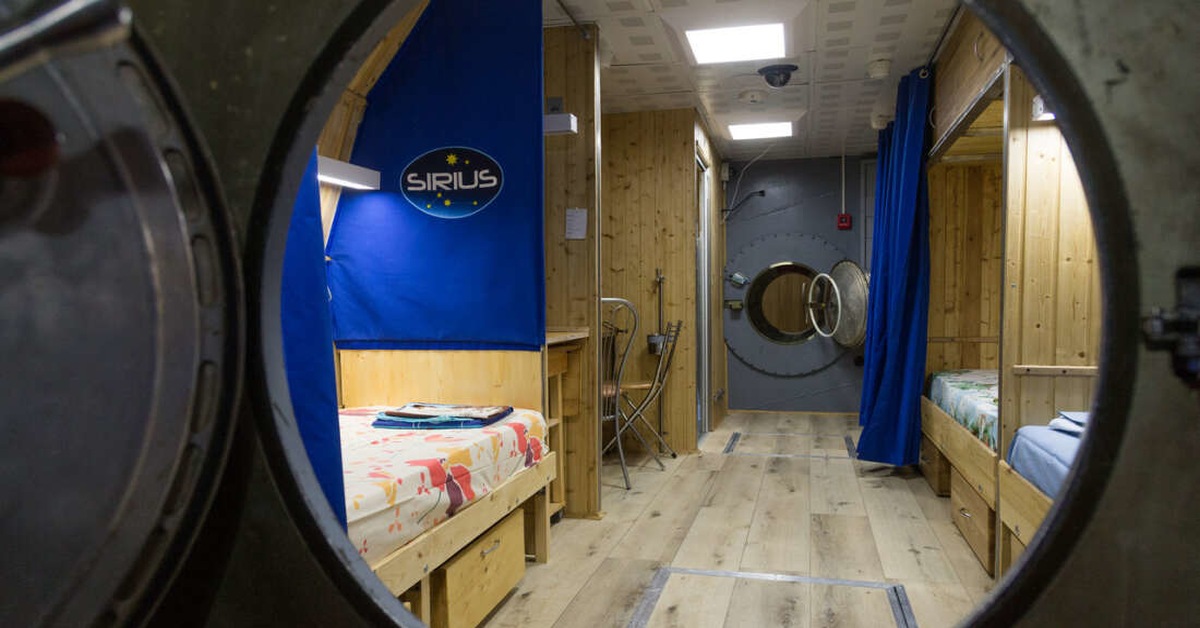Scientists put together an international group of people for 120 days in an isolated environment to find out how humans would behave on Mars, if we ever managed to set foot there. According to the results, there are serious risks involved.

If the modern-day space race between nations and companies continues at the same pace as in recent years, we can be sure that sooner or later the first human will arrive on Mars. And although that feat could soon be accomplished in a technological sense, scientists have no idea how a team of astronauts isolated almost 380 million kilometers (236 million miles) from Earth would thrive in such a scenario in a psychological sense.
To find out, NASA’s Human Research Program (HRP) partnered with Russia’s IBMP Ground-based Experimental Complex (NEK) to place groups of individuals in a Mars colonization simulation called Project SIRIUS (Scientific International Research In Unique terrestrial Station) in an effort to understand the psychology of astronauts during long space flights, IFL Science reports. During a 17-day and a 120-day isolation experiment conducted in 2017 and 2019, respectively, they simulated a team isolated in an extraterrestrial environment. The results have recently been published in Frontiers in Physiology.
The takeaway is that due to the longer absence from the Earth and the delay in communication, the team began to become detached from mission control and organize into an autonomous community.

Previous simulations, namely the Mars-500 missions, have suggested that astronauts may at some point begin to deviate from the purpose of their mission and begin to make decisions on their own. To find out if this is indeed the case, the scientists isolated two mixed-gender international groups to test how participants communicated with mission control and how well they worked together to form a successful colony.
They began with a take-off procedure, after which the crew landed on the inhospitable environment of a specialized area within the training facility. Crew members were then locked away in pods together, given minimal rations and supplies, and subjected to full isolation.

The analysis of the experiments showed that the crew actually increased their communication with the mission control center (MCC) at around the mid-point of the mission, which involved the Mars landing, but then became increasingly detached, reducing the volume of communication and relying less on the recommendations of MCC. In other words, they became more and more independent as they were adapting to their mission.
While it is positive the crew were able to take matters into their own hands and live autonomously, the researchers saw the disconnect from MCC as a worrying phenomenon.
“The negative side is that the mission control loses the possibility to understand the needs and problems of the crew, which consequently hinders mission control’s ability to provide support,” said co-author Dmitry Shved of the Russian Academy of Sciences and the Moscow Aviation Institute, in a statement to CNET.
Another noteworthy result is that, similarly to previous experiments, there was a marked difference between how the male and female crew members behaved. Female crew members tended to report on problems to the MCC more often, expressing their support, while their communication styles were more emotional. Male crew members, on the other hand, were less likely to report to MCC. Interestingly, by the end of the simulation, both the male and female crew members had adapted to each other’s communication styles, demonstrating a similar level of emotion and regularity of communication.

Of course, since only 12 people took part in the simulations, the deviances between groups and individuals could simply be down to individual differences, so generalizations cannot be made before more research is conducted.
And that’s exactly what the researchers are doing – the next Project SIRIUS experiment is now underway, involving an 8-month isolation that began on November 4th.
